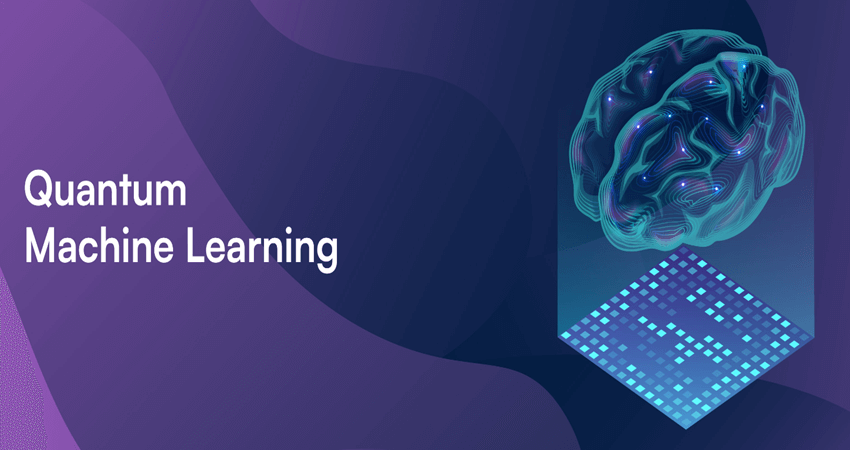In recent years, the convergence of quantum computing, machine learning, and cloud technologies has given rise to a new frontier in computational power and problem-solving capabilities. Cloud-based quantum machine learning applications are poised to revolutionize industries across the board, from finance and healthcare to logistics and cybersecurity. In this comprehensive exploration, we’ll delve into the exciting world of quantum machine learning, its cloud-based applications, and the transformative impact it’s having on various sectors.

Understanding Quantum Machine Learning
Before we dive into cloud-based applications, it’s crucial to understand what quantum machine learning (QML) is and how it differs from classical machine learning approaches.
What is Quantum Machine Learning?
Quantum Machine Learning is an interdisciplinary field that combines principles from quantum computing and machine learning. It leverages the unique properties of quantum systems, such as superposition and entanglement, to perform complex computations and process vast amounts of data more efficiently than classical computers.
Key Advantages of QML:
- Exponential Speedup: Quantum algorithms can solve certain problems exponentially faster than their classical counterparts.
- Handling Complex Data: QML excels at processing and analyzing high-dimensional and complex data structures.
- Optimization: Quantum systems can find global optima more efficiently in complex optimization problems.
- Simulating Quantum Systems: QML is particularly adept at simulating and analyzing quantum systems, which is crucial for fields like materials science and drug discovery.
Cloud-Based Quantum Machine Learning: A Game-Changer
The integration of quantum machine learning with cloud computing has opened up new possibilities and made this powerful technology more accessible to businesses and researchers worldwide.
Benefits of Cloud-Based QML:
- Accessibility: Cloud platforms democratize access to quantum computing resources, allowing organizations of all sizes to leverage QML without significant hardware investments.
- Scalability: Cloud-based solutions offer the flexibility to scale quantum resources up or down based on demand.
- Collaboration: Cloud platforms facilitate collaboration among researchers and data scientists across geographical boundaries.
- Integration: Cloud-based QML can be easily integrated with existing classical machine learning workflows and data pipelines.
Industry Applications of Cloud-Based Quantum Machine Learning
Let’s explore how various industries are harnessing the power of cloud-based quantum machine learning to drive innovation and solve complex problems.
1. Finance and Banking
The financial sector is at the forefront of adopting quantum machine learning technologies to gain a competitive edge.
Applications:
- Portfolio Optimization: QML algorithms can analyze vast amounts of market data to optimize investment portfolios, considering multiple factors simultaneously.
- Risk Assessment: Quantum-enhanced machine learning models can more accurately predict and assess financial risks, improving decision-making processes.
- Fraud Detection: QML can process complex patterns in transaction data to identify fraudulent activities with higher accuracy and speed.
Example: JPMorgan Chase has been experimenting with quantum computing for portfolio optimization and option pricing, leveraging cloud-based quantum services to enhance their financial models.
2. Healthcare and Pharmaceuticals
The healthcare industry is leveraging quantum machine learning to accelerate drug discovery and improve patient care.
Applications:
- Drug Discovery: QML can simulate molecular interactions and predict drug efficacy, significantly reducing the time and cost of developing new medications.
- Personalized Medicine: By analyzing complex genetic and clinical data, QML can help tailor treatments to individual patients.
- Medical Imaging: Quantum-enhanced image processing can improve the accuracy of diagnoses from MRIs, CT scans, and other medical imaging techniques.
Example: Accenture and 1QBit have collaborated to develop a quantum-enabled molecular comparison application that could accelerate drug discovery for complex neurological diseases.
3. Logistics and Supply Chain Management
Quantum machine learning is optimizing logistics operations and enhancing supply chain resilience.
Applications:
- Route Optimization: QML algorithms can solve complex traveling salesman problems more efficiently, optimizing delivery routes and reducing transportation costs.
- Demand Forecasting: By processing vast amounts of historical and real-time data, QML can provide more accurate demand predictions, improving inventory management.
- Supply Chain Risk Management: Quantum-enhanced models can simulate various scenarios to identify potential disruptions and optimize contingency plans.
Example: D-Wave Systems has demonstrated how their quantum annealing technology can optimize fleet management and logistics operations for companies like Volkswagen.
4. Cybersecurity
As cyber threats become more sophisticated, quantum machine learning is enhancing our ability to detect and prevent attacks.
Applications:
- Anomaly Detection: QML can process network traffic data more efficiently to identify unusual patterns that may indicate a cyber attack.
- Encryption: Quantum-resistant cryptography algorithms are being developed to protect against future quantum-enabled hacking attempts.
- Threat Intelligence: By analyzing vast amounts of threat data, QML can predict and identify emerging cyber threats more accurately.
Example: IBM’s quantum-safe cryptography services are being integrated into their cloud offerings to prepare organizations for the post-quantum cryptography era.
5. Energy and Climate Modeling
Quantum neural networks is contributing to more accurate climate models and optimizing energy systems.
Applications:
- Climate Prediction: QML can process complex climate data to create more accurate models, aiding in climate change research and mitigation strategies.
- Energy Grid Optimization: Quantum algorithms can optimize energy distribution in smart grids, balancing supply and demand more efficiently.
- Materials Science: QML is accelerating the discovery of new materials for solar cells and energy storage, contributing to sustainable energy solutions.
Example: Google’s Quantum AI lab is exploring how quantum computing can be used to design more efficient batteries and solar cells.
Challenges and Future Outlook
While the potential of cloud-based quantum neural networks is immense, several challenges need to be addressed:
- Quantum Error Correction: Current quantum systems are prone to errors due to environmental noise. Developing robust error correction methods is crucial for scaling up quantum computations.
- Algorithm Development: Creating quantum algorithms that outperform classical counterparts for practical problems remains an active area of research.
- Skills Gap: There’s a shortage of professionals with expertise in both quantum computing and Quantum neural networks. Bridging this skills gap is essential for wider adoption.
- Hardware Limitations: Quantum computers are still in their infancy, with limited qubit counts and short coherence times. Continued hardware improvements are necessary to realize the full potential of QML.
Despite these challenges, the future of cloud-based quantum machine learning looks promising. As quantum hardware continues to improve and more organizations gain access to these resources through cloud platforms, we can expect to see:
- Hybrid Quantum-Classical Systems: Integrating quantum and classical computing to leverage the strengths of both paradigms.
- Industry-Specific QML Platforms: Cloud providers developing tailored quantum machine learning solutions for specific industries.
- Quantum Machine Learning as a Service (QMLaaS): More accessible and user-friendly platforms for organizations to leverage QML without deep quantum expertise.
Cloud-based quantum neural networks applications are at the forefront of a technological revolution, promising to solve complex problems that were once thought intractable. As industries continue to explore and adopt these cutting-edge technologies, we can expect to see groundbreaking innovations across various sectors.
The convergence of quantum computing, machine learning, and cloud technologies is not just a theoretical concept but a practical reality that is already beginning to shape our world. From optimizing financial portfolios to accelerating drug discovery and enhancing cybersecurity, cloud-based Quantum Neural Networks is proving to be a powerful tool in addressing some of our most pressing challenges.
As we look to the future, it’s clear that organizations that embrace and invest in quantum machine learning capabilities will have a significant competitive advantage. The journey into this quantum-powered future is just beginning, and the possibilities are truly limitless.
By staying informed about these developments and exploring potential applications within your own industry, you can position yourself at the forefront of this exciting technological frontier. The quantum revolution is here, and it’s being powered by the cloud.
| Read More Topics |
| The future of learning virtual lab electrochemical cells |
| Protect your home computer cyber security |
| Digital asset management systems need a database |





